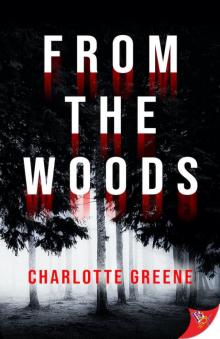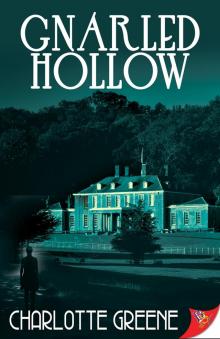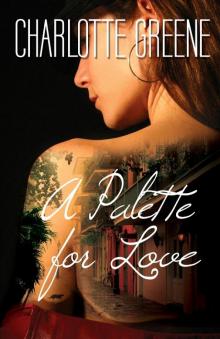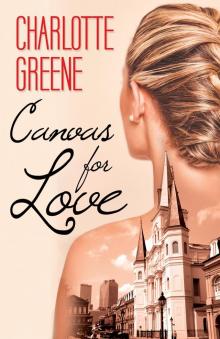- Home
- Charlotte Greene
Gnarled Hollow Page 2
Gnarled Hollow Read online
Page 2
She hadn’t.
Then, three weeks ago, a new letter had appeared in her mailbox, this one written on plain, if expensive, stationery with no return address. Emily almost hadn’t opened the letter, addressed as it was to her at her former university. Someone on campus had forwarded it to her home address. She’d almost thrown the letter into the trash, unopened, sure it would simply be more salt on her wounds, but just before she let it drop onto the top of her coffee grounds and apple cores, she saw its New York postmark and hesitated. She’d applied for a grant in New York, which came with a small stipend and housing for the summer, but she’d forgotten all about it.
Hands shaking, she opened the envelope, but the letter she pulled out was not, in fact, in any way related to the grant. Instead, it was from another relative of Margot Lewis—a distant one—who had inherited the house after Lewis’s cousin died the previous winter. This relative was contacting Emily after an inventory of the cousin’s effects and after seeing the letter Emily had sent asking to see the house. This relative was opening the house that summer for scholars and wanted to invite her. A phone number was included in the letter, and Emily was asked to call as soon as she could.
Again, she started to throw the letter away, certain that if she followed up with this person and explained her new joblessness, the letter-writer would have to turn her down. Still, Emily was too curious to pass up the chance.
“Hello?” The voice was soft and shaky. Emily pictured a very old woman, wrapped up in a pale-pink, hand-knitted shawl.
“Hello. My name is Dr. Emmaline—Emily—Murray. I received a letter with your phone number. You asked me to call you regarding Gnarled Hollow and Margot Lewis.”
“Oh, well, that’s marvelous!” the woman said. “I was very much hoping I would hear from you.”
Emily hesitated, surprised by the change in the woman’s voice. It sounded stronger now, more certain. Perhaps instead of the hand-knitted shawl, she was wearing a silk blouse and holding a dry martini.
“I’m sorry,” Emily said. “I didn’t get your name—I couldn’t quite make it out in the letter.”
“Oh, forgive me. My handwriting’s gone to shit. My name is Ruth Bigsby—and please, call me Ruth. I inherited Gnarled Hollow, though I couldn’t begin to tell you how it happened. My lawyers tried to explain my connection to that family, but it’s very distant. The Lewises had less of a family tree and more of a trunk, if you catch my drift. Lots of cousins marrying cousins and all that, and very few children. I know it was like that in those days, but it does give you pause to see people with the same last name marrying each other over and over again!” She barked with laughter that devolved into a hacking cough. Now Emily pictured a woman with a deeply plunging T-shirt showing off an overly tanned décolletage, a cigarette in one hand, a beer in the other.
“Anyway,” Ruth said, “the house also came with a great deal of money, which is something I certainly don’t mind, except for all the damn taxes.” She barked with laughter again. “I’ve been working all spring to get things in order—figure out what to do with it so the damn government can’t take it all from me—and one of my lawyers suggested setting up a kind of trust in the house itself, opening it up to scholars for study. The former owner had hundreds of letters over the years from people asking to see the house, and I asked my lawyers to find a few people in there who didn’t seem like kooks. Your name rose to the top of the list.”
“Glad to know I’m not a kook,” Emily said, smiling.
Ruth barked again. “And how! You wouldn’t believe all the weirdos out there trying to get inside. Bunch of whack jobs, let me tell you.”
“I can imagine.”
“Most of them want to see where she died. Want to touch her bed, that kind of thing.”
“Right.”
“Anyway, I had the place cleaned, top to bottom, and there’s plenty of room for people to use it as a work space. Margot Lewis had a library, too, and she left all of her papers there, along with her family library.”
“Her papers?” Emily asked, her heart pounding. No one had seen a single thing written by Margot Lewis in over fifty years. It would be a significant boon to modernist scholarship to find new work.
“Yes—and there’s a ton of it. Stacks and stacks, journals and folders of things, some of it handwritten, some of it typed. I don’t even know where to start. That’s why I want to get some experts out there to start going through it all. Experts like you.”
For a moment, the last few months fell away, and Emily felt a tremendous surge of hope and triumph. While her own scholarship had been well received in modernist-studies circles, she was too junior to have made much of a mark before she’d been let go. Being the person to release and study new work by Margot Lewis would certainly put her back on the map. Her hopes died a few seconds later when she remembered her changed circumstances. Ruth would be much better served, after all, by someone with a university to back up her work.
Ruth must have taken her silence as hesitance. “I can pay you, of course. Whatever you would normally be paid at your university, I mean. That’s what the lawyers suggested. That way you could take a leave of absence, or whatever, and not be out anything.”
Emily hesitated again. This was the chance of a lifetime. In fact, had she been in her old position at the university, it would have been very difficult, if not impossible, to accept the offer. Junior faculty were very rarely given leave or sabbatical. Her joblessness, in fact, would allow to her to go—if Ruth still wanted her. Emily decided to see what the offer would involve before she confessed to her current situation.
“When could I start?” she asked.
Ruth barked again. “As soon as you wanted! In fact, the sooner the better. The house is so old, it doesn’t have air conditioning or central heating, if you can believe it, so working there in the summer would be much more tolerable. It’s in the woods, you know, so it doesn’t get very hot there, even in July. I don’t know how people in those days stayed warm with only fireplaces, but that’s all you’d have come October or so.”
“And how long would the project last?”
“Heck if I know!” Her bark was more of a yipping chortle now. “Like I said, I need the experts to tell me that. I imagine you’ll spend the first couple of months getting a handle on the situation before you can determine how long it’ll take.”
The temptation to accept pushed at the back of her tongue. Not only was this offer a lifesaver—her savings would be depleted by July, at best—but she would find the project itself incredibly fascinating. She had completed and submitted her latest book last autumn, but her chapter on Lewis had been the most interesting part of the whole project. Now that she knew what would be required of her—something she was, in fact, uniquely qualified to do—she didn’t want to confess that she was currently without an institution. Ruth would likely turn her down if she fessed up.
Accepting the wild impulse that rose in her heart, the one that closed off all good sense, Emily said, “I’d love to do it. And I’d like to start as soon as possible—early June, if that’s okay.”
Ruth barked so loudly Emily had to pull the phone away from her ear, and they spent the next half hour covering the initial details. At no time was Emily tempted to admit that she was unemployed. The opportunity was simply too good. She would have to hope Ruth would forgive her omission later.
As they wrapped up their conversation, Ruth said, “Oh, before I forget, I wanted to mention the others.”
“The others?”
“The other scholars that will be there with you. I wouldn’t want you to be surprised when they show up. Most of them won’t get there until after you, but don’t worry. You won’t be by yourself all summer in that big old place.”
Emily’s hopes sank. Very likely one or more of them would know who she was and what had happened to her. After all, academia was a very small world. Her charade would be up before she’d even had a chance to prove herself.
�
�Now let me see,” Ruth said, and Emily heard her shuffling papers. “I have a note around here somewhere. Ah, here it is. First, there’s a man from New York, Dr. Mark Somner.”
“Dr. Somner? I’ve never heard of him.”
“He’s in architecture, if I remember correctly. An historian. He’ll be studying the house. Then there’s a Mr. Christopher Wu—I don’t think he has a title, but I could be wrong. He’s a landscape engineer, and he’ll be studying the gardens and grounds. There’s a Dr. Juniper Friend—what a name!—an art historian. And another one of your lot—Dr. Jim Peters, an English professor.”
Emily’s hopes had risen with the list of people from other disciplines, but they crashed on this last one. She and Jim had been on panels together at various conferences over the years. He knew her and would have heard about her layoff. Still, she decided to let this adventure play out. Perhaps she could, if it came to it, pass herself off as an independent scholar, should Ruth actually ask.
“Finally, there’s my niece, Lara. She’ll be there for a few days, sometime in mid-to-late June, I think. So you’ll have company, but believe me, in a house that big, you’ll barely notice each other.”
This last addition made Emily pause. Would the niece be there as a kind of spy? She couldn’t think of a way to ask about this possibility politely, however. She would wait and find out. A niece seemed like a very minor obstacle, especially since she apparently wouldn’t be there very long.
“I might stop by once or twice myself, but you’ll all have plenty of warning when I do. And as I said, the others won’t join you until after you’ve gotten there. You should have the place to yourself for a few days, maybe more.”
“It all sounds wonderful, Ruth. I can’t thank you enough for this opportunity.”
“The pleasure is all mine. What good is money if you have to give it all away to the IRS?”
Chapter Three
The gravel road to the estate was exactly where the cyclist had said Emily would find it—just beyond a little stone bridge. She didn’t find a marker of any sort from the main, paved road. Without his directions, she would never have discovered the road to the house, so she was grateful to him despite the strangeness of their encounter.
Much to her surprise, the road leading to the gate was well maintained. When the cyclist had told her it was unpaved, she’d expected a rutted, muddy mess out here in these wet woods. She’d grown up on a dirt road, and it had always been in a state of sloppy disrepair. If you don’t take care of dirt roads—and their father rarely had—they quickly devolve into something most drivers have second thoughts about. This road, on the other hand, had been carefully raked recently, with new gravel laid down, although she didn’t see a mark on it to suggest anyone had driven here recently. The trees had been trimmed back enough that they didn’t brush her car, another monumental task with a road this length. Clearly Ruth was paying a lot to keep it in good condition.
A few minutes later she arrived at the gate, where she could finally see the large fence that encircled the estate. From the road, it had been hidden behind the trees, but here she noticed that the fence was high and formidable, a black wrought iron with tipped points. The gate was locked, of course, and she had to park and get out to unlock it. Ruth had sent her a large package the previous week containing keys and information, and it took her a moment to find the right key on the ring. The lock opened easily, and she released the chain that held the gates closed. It took a great deal of effort to swing the heavy gate, but she needed to open only one side to make enough room for her little car. She got back in, drove through and past it, then got back out and closed and locked the gate and chain again. Ruth had been very particular with her warnings about keeping the gate locked, to avoid the “kooks” getting in.
The gravel road past the gate was even nicer, made of what appeared to be crushed seashells. It was bright and white, and, as Emily neared the house and the trees began to thin, the road seemed to glow in front of her in the sunlight.
* * *
Later, when Emily tried to remember the feeling that came over her upon first seeing Gnarled Hollow, she wasn’t able to pinpoint exactly what made her slam on her brakes and stop. At first, for less than a full second, she experienced something like fear—even horror. Turn around, she thought desperately. Turn around right now. Forget you were ever here. Leave and never come back.
Seconds later, she was hit with a surge of joy and exhilaration, a happiness so hot and sweeping that she had to blink back tears. Her heart began to race, and she flushed with heat and excitement. She could no longer see for the tears and clasped her hands to her chest, gazing at the house with blurry eyes.
She had expected Gnarled Hollow to be awful and ugly, hideous in a terrible, Victorian style of neo-Gothic or neoclassic. Despite its age and a vague kind of notoriety, she hadn’t found any pictures of the house, so she shouldn’t have been surprised to find something different out here in these woods. Yet she was. The house had been built in the late 1870s by a family with an unimaginable amount of money. Usually rich Americans in that era modeled their homes on European classics, sometimes going so far as to copy them outright. Gnarled Hollow was something else and totally, unexpectedly original.
White and stately, it had none of the trappings of other horrible large houses of the era: no columns, no marble, no flying buttresses or unusual gables. It was, in fact, something like a large, English-style cottage. However, the enormous windows made it entirely different—huge, eye-like squares across the entire façade of the house, seemingly hundreds of them at first glance. The wide lawn in front contained no fountains or statues to disrupt the open, empty green, and the white road curved around it in a graceful arc. The house was, in a word, one of the most beautiful things Emily had ever seen.
Embarrassed now, and glad she was alone, she put her shaking hands back on the steering wheel and followed the road around the green on the right, parking directly in front of the main door. Ruth had told her about a converted carriage house somewhere that she and the others should use as a garage, but she decided to find it later. She was compelled, somehow, to look at the house now.
Emily got out of her car and walked across the large lawn, back to the road where she’d stopped upon seeing the house. She turned around to take it in again as a whole, holding her breath. She wanted, in part, to feel that same rush of happiness she’d experienced when she first saw it. The sensation was weaker now, but still there, and heat and gratitude rushed through her. This is mine, she thought. I live here now.
Movement caught her eye, high up in one of the windows on the right, and she sought out the spot. The trees were far away from the house, the whole yard and some surrounding area on both sides leveled completely, but for a moment she was certain she’d seen merely the reflection of a branch or a cloud. She couldn’t make out anything through the sunlight’s glare, and she stepped to the side to avoid the direct path of the light.
A woman stood there in the window upstairs, staring down at her.
Emily’s heart leapt, and she froze, so surprised she had to bite her lip to keep from crying out. She put a hand to her chest and laughed a little before lifting it in a wave. The woman continued to stare at her without moving or responding. Emily let her hand drop down at her side, confused, and a moment later the woman turned and disappeared into the room behind her.
Puzzled by this behavior, and curious to see who she was, Emily walked back across the lawn and to the front door, rooting through her key ring for the one to the front door. On impulse, she turned the knob and found the door unlocked. She pushed the door wide and went inside.
She was in a large foyer, and the marble she’d expected to see outside lay here on the floor. It stretched out from the foyer and around a main, central staircase. Near her toward the front of the house stood two sets of double doors, one to her left and one to her right. Farther away, to the left and right of the stairs, she could see more doors. All of them were closed. The
stairs that led up were covered in a thick, pattern-less, maroon carpet. She closed the front door behind her, but the huge fanlight transom window over the door and two smaller windows on either side of it let in ample sunlight. She’d left the instructions for finding her bedroom in the car, but she wasn’t concerned with that right now. Before she settled in, she wanted to find the woman she’d seen in the window. Clearly one of the others had arrived earlier than expected.
After climbing the stairs, Emily reached a landing from which two smaller sets of stairs led off to the left and right. She took the set to the right, in the general direction from which she’d seen the woman. It led up to a balcony-like platform that ran the length of the house. A short railing on the side overlooked the main foyer and stairs, and four doors to her left were spaced evenly the along the length of the house. Turning around, she peered across and over the main staircase and spotted another balcony at the top of the other set of stairs, to the left of the main landing. It seemed almost identical to the one she was standing on now, but she saw a fifth door on that side. The carpet here on the balcony was, like the stairs, thick, maroon, and fairly new, judging by its condition.
Unsure which door the woman was behind, Emily knocked on every one she walked past, and after she’d hit the last door at the end of the balcony, she tried to open it. It was locked. Confused, she glanced at her key ring but saw only four keys there—one to the front gate, one to the front door, one that was probably for her bedroom, and a smaller key that might be for a mailbox. She didn’t have any others.
Emily decided to try the third, larger key, and when it slid into the lock, she somehow wasn’t surprised to find that this was the key to her bedroom. She unlocked the door and opened it, once again nearly blinded by the light streaming in from outside.

 On the Run
On the Run From the Woods
From the Woods Gnarled Hollow
Gnarled Hollow Pride and Porters
Pride and Porters A Palette for Love
A Palette for Love Canvas for Love
Canvas for Love